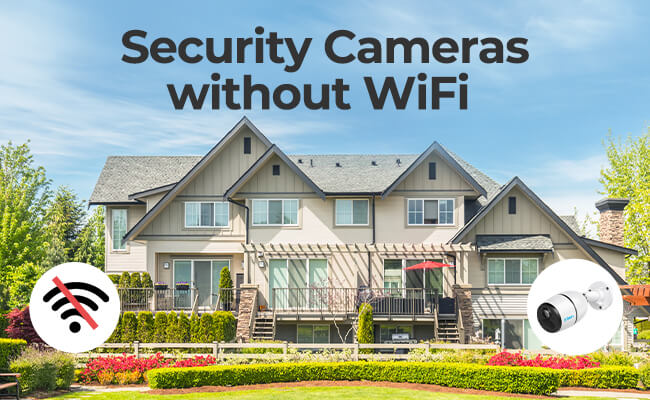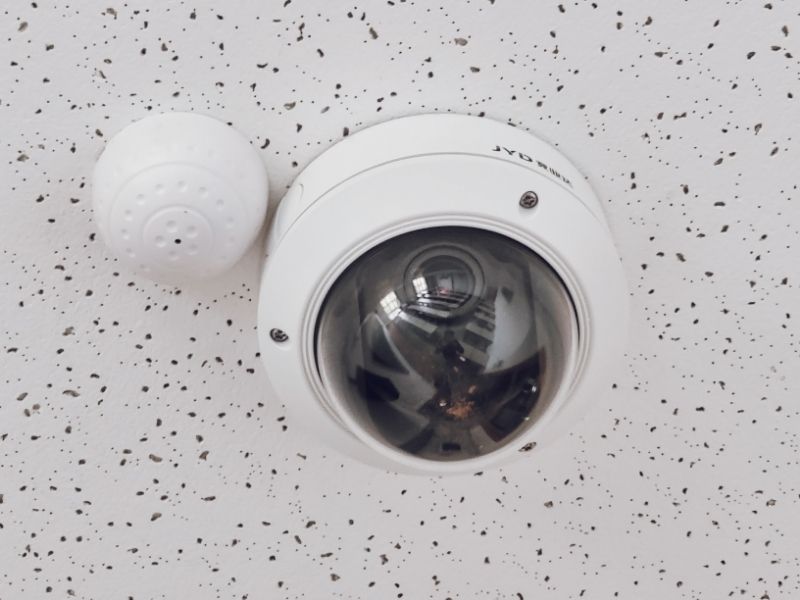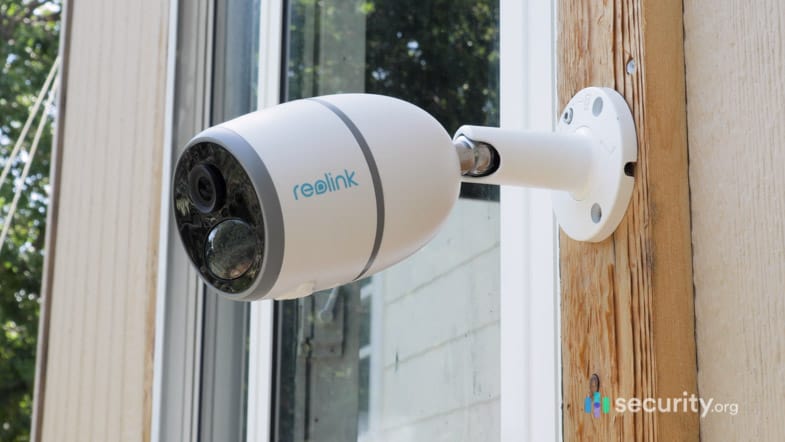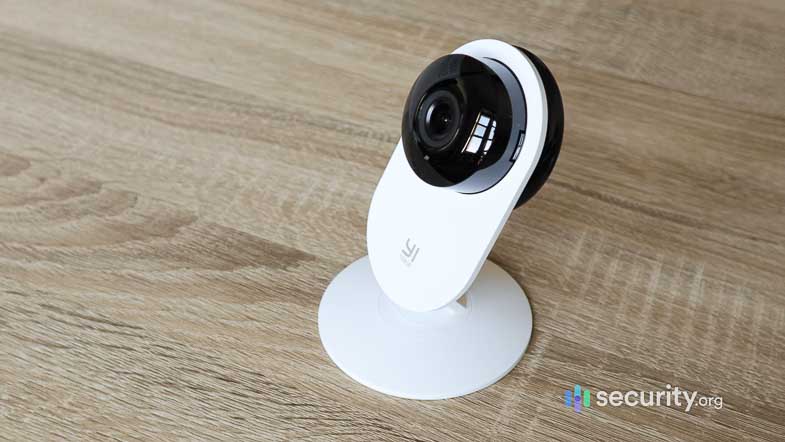Wireless Security Cameras Without Internet: Ultimate Guide & Benefits

Last updated on February 25th, 2026
Wireless security cameras without internet offer unique advantages. They work even where Wi-Fi isn’t available.
In today’s world, security is paramount. Yet, not all places have internet access. Wireless security cameras without internet fill this gap. They provide reliable surveillance in remote areas, construction sites, or during internet outages. These cameras store footage locally, ensuring you never miss important events.
They are easy to install and often more secure from hacking. Discover how these cameras can enhance your security setup, even in the most disconnected locations. Let’s explore their benefits and see if they fit your needs.

Credit: birdseyesecurity.com
Introduction To Wireless Security Cameras
Wireless security cameras provide a convenient way to monitor your property. They are easy to install and do not require complex wiring. Many people choose wireless cameras for their flexibility and ease of use. But did you know some wireless cameras work without the internet?
This feature is beneficial for areas with poor internet connectivity. It also adds an extra layer of security. Intruders cannot disable your cameras by cutting off the internet. Let’s dive deeper into what these cameras are and how they function.
What Are Wireless Security Cameras?
Wireless security cameras use radio signals to transmit video. They do not need wires to send data to your storage device. These cameras are powered either by batteries or a power outlet. Wireless cameras come in various shapes and sizes. Some are designed for indoor use, while others are rugged for outdoor conditions.
They often have features like night vision, motion detection, and high-definition video. These cameras can be accessed remotely via apps on your smartphone or tablet. This makes monitoring your property convenient and easy.
How They Work Without Internet
Wireless security cameras without internet use local storage. They record video directly to a memory card or a local hard drive. This ensures your recordings are safe even without an internet connection. Some cameras use a local network to transmit data.
This local network does not rely on the internet. Instead, it uses a direct connection between the camera and the storage device. Motion detection alerts can also be sent via SMS or local alarms. You can access the footage later by connecting to the storage device.
These features make wireless security cameras without internet a reliable choice. They provide security in remote locations or during internet outages.
Benefits Of Wireless Cameras
Wireless security cameras without internet can offer several benefits. They provide security without relying on internet access. This makes them a great choice for many users. Let’s explore these benefits in detail.
No Internet Dependency
Wireless cameras without internet do not need Wi-Fi. They work without being connected to a network. This means they can be placed anywhere. Even in areas with poor internet coverage. You can use them in remote locations. Like cabins, barns, or construction sites. This flexibility is a major advantage.
Enhanced Privacy
Privacy is a major concern for many. Wireless cameras without internet provide enhanced privacy. They do not send data over the internet. This reduces the risk of hacking. Your footage stays secure. Only you have access to it. Peace of mind comes from knowing your data is safe.
Cost-effectiveness
Wireless cameras without internet can be more cost-effective. They do not require a monthly internet plan. This can save money over time. Installation is often simpler. No need for complex wiring or network setup. This reduces initial costs. Overall, they offer good value for money.
Types Of Wireless Security Cameras
Wireless security cameras without internet are a great choice for many. They offer flexibility and security without relying on Wi-Fi. There are different types of these cameras, each with unique benefits. Understanding these types helps in making the right choice for your security needs.
Battery-powered Cameras
Battery-powered cameras are a popular choice. They are easy to install and move around. These cameras run on rechargeable batteries. This means no wires are needed. They are perfect for areas where power outlets are not available.
Battery-powered cameras can work in remote locations. Their lifespan depends on usage and battery capacity. Regular charging ensures they work properly. Some models even alert you when the battery is low.
Solar-powered Cameras
Solar-powered cameras use solar panels to charge their batteries. They are eco-friendly and cost-effective in the long run. These cameras are ideal for sunny locations. They need little maintenance and can work for extended periods without human intervention.
Solar-powered cameras are great for outdoor use. They can be placed in gardens, farms, or construction sites. Their efficiency depends on the amount of sunlight they receive. It’s important to place them where they can get maximum sunlight.
Local Storage Cameras
Local storage cameras save footage directly onto an SD card or a hard drive. This means you don’t need an internet connection to store video. These cameras are good for privacy-conscious users. The data stays with you and is not uploaded to the cloud.
Local storage cameras can store a limited amount of footage. Regularly checking and clearing storage is necessary to ensure continuous recording. These cameras are suitable for areas with stable power supply and limited internet access.
| Type | Power Source | Benefits | Best For |
|---|---|---|---|
| Battery-Powered | Rechargeable Batteries | Portable, Easy to Install | Remote Locations |
| Solar-Powered | Solar Panels | Eco-Friendly, Low Maintenance | Sunny Outdoor Areas |
| Local Storage | Electricity | Privacy, No Internet Needed | Stable Power Areas |

Credit: www.security.org
Installation Process
Installing wireless security cameras without internet is straightforward. These cameras offer flexibility and a sense of security. Follow the steps below to ensure proper installation and functionality.
Choosing The Right Location
Select a spot with a clear view. Avoid placing cameras where they are easily tampered with. High corners of rooms often work well. Outdoor cameras should be under eaves or overhangs. This protects them from weather and tampering.
Mounting The Camera
Gather the necessary tools. Use a drill to make holes for the mounting screws. Attach the camera bracket to the wall. Ensure it is secure and stable. Place the camera onto the bracket. Adjust the angle for the best view. Tighten all screws to keep it in place.
Setting Up Local Storage
Wireless cameras without internet need local storage. Insert a microSD card into the camera. Make sure it has enough capacity for your needs. Some cameras come with a built-in hard drive. Check the manufacturer’s instructions. Ensure it is correctly formatted and ready to record.
Features To Look For
When choosing a wireless security camera without internet, focus on key features. These features determine the camera’s effectiveness and ease of use. Let’s explore the essential features to look for in such cameras.
Video Quality
High video quality is crucial for clear footage. Look for cameras with at least 1080p resolution. This ensures sharp and detailed recordings. High resolution helps in identifying faces and objects better. It improves the overall security of your property.
Night Vision
Night vision is vital for round-the-clock surveillance. Ensure the camera has infrared LEDs. These enable clear recording in low-light conditions. Some cameras also offer color night vision. Choose one that suits your needs and environment.
Motion Detection
Motion detection is essential for monitoring activity. Look for cameras with adjustable sensitivity settings. This helps in reducing false alarms. A camera with good motion detection will alert you to any movement. It keeps you informed and enhances security.
Two-way Audio
Two-way audio allows communication through the camera. It enables you to speak and listen remotely. This feature is useful for deterring intruders. It also helps in communicating with visitors or family members. Ensure the camera has clear audio quality for effective use.
Maintaining Your Camera
Wireless security cameras without internet can be a great asset. They provide security even in remote areas. Keeping them in top shape is crucial for their performance. Regular maintenance ensures they work efficiently. Below are some key points on maintaining your camera.
Regular Battery Checks
Wireless cameras often rely on batteries. Checking the battery level regularly is important. This ensures your camera does not run out of power unexpectedly. You can set reminders to check the batteries once a month. Replace the batteries if they are low. Use high-quality batteries for longer life.
Cleaning The Lens
A clean lens is crucial for clear images. Dust and dirt can accumulate on the lens over time. Wipe the lens gently with a soft, dry cloth. Do this at least once a week. For stubborn dirt, use a lens cleaning solution. Avoid using harsh chemicals as they can damage the lens.
Updating Firmware
Firmware updates are important for your camera’s performance. They fix bugs and improve features. Check for firmware updates on the manufacturer’s website. Follow the instructions to update the firmware. Regular updates keep your camera secure and functional.
Troubleshooting Common Issues
Wireless security cameras without internet can face various issues. These problems can disrupt your security system. Knowing how to troubleshoot common issues can save time and stress.
Connectivity Problems
First, check if your camera is within the range of your wireless receiver. Walls and other obstacles can affect the signal. Make sure there are no large objects between the camera and receiver. If the signal is weak, consider moving the camera closer. You can also try adjusting the antenna for a better signal.
Power Issues
Ensure the camera has a stable power source. Check the power cable for any damage. If the camera uses batteries, make sure they are fully charged. Sometimes, changing the batteries can solve the issue. Verify the power outlet is working by plugging in another device.
Storage Full
Wireless security cameras often use SD cards for storage. If the storage is full, the camera may stop recording. Check the SD card and delete unnecessary files. You can also transfer the files to a computer. For continuous recording, consider using a larger SD card.
Comparing With Internet-dependent Cameras
Wireless security cameras without internet have become popular. They offer distinct advantages over internet-dependent cameras. Let’s explore how these two types compare.
Pros And Cons
Wireless security cameras without internet provide several benefits. They work even during internet outages. They are often more secure from hacking. There is no need for a Wi-Fi connection.
- Pros:
- More reliable in remote areas.
- Enhanced privacy.
- Independent of internet service.
- Cons:
- Limited remote access.
- May need physical storage.
Internet-dependent cameras have their own pros and cons. They offer real-time remote access. However, they rely on a stable internet connection.
- Pros:
- Easy remote monitoring.
- Cloud storage options.
- Cons:
- Vulnerable to hacking.
- Internet outages affect performance.
Use Cases
Different scenarios suit different types of cameras. Wireless security cameras without internet are ideal for rural areas. They work well in places with poor internet.
- Farms and barns.
- Construction sites.
- Remote cabins.
Internet-dependent cameras are better for urban settings. They are great for homes with reliable internet.
- Urban homes.
- Offices with Wi-Fi.
- City apartments.
Cost Comparison
Cost varies between the two types. Here is a comparison:
| Type | Initial Cost | Maintenance Cost |
|---|---|---|
| Wireless without internet | Medium | Low |
| Internet-dependent | High | High |
Wireless security cameras without internet generally have lower ongoing costs. They do not need a subscription for cloud storage. Internet-dependent cameras may have higher long-term costs.
Real-world Applications
Wireless security cameras without internet offer flexibility and reliability. They are ideal for various real-world applications where internet access is limited or unavailable. Whether used for home security, business surveillance, or rural and remote areas, these cameras provide peace of mind and protection. Below, we explore their uses in detail.
Home Security
Wireless security cameras without internet are perfect for home security. They work even during internet outages. These cameras store footage locally on SD cards or DVR systems. This ensures you have access to recordings anytime.
Key benefits include:
- Continuous recording without relying on internet connectivity.
- Easy installation and setup.
- No monthly fees for cloud storage.
They are a great option for homes with unstable internet connections. They also work well in areas where privacy is a concern.
Business Surveillance
For businesses, wireless security cameras without internet offer reliable surveillance. They provide constant monitoring of premises. These cameras can be placed in strategic locations to cover critical areas.
Advantages for businesses include:
- Reduced risk of footage loss due to internet issues.
- Lower operational costs with no need for internet plans.
- Flexibility in camera placement without network constraints.
Businesses can enhance their security infrastructure effectively. They can ensure continuous monitoring even in network blackouts.
Rural And Remote Areas
In rural and remote areas, internet access can be limited or non-existent. Wireless security cameras without internet are ideal here. They offer reliable monitoring without the need for a network.
Benefits for rural and remote areas:
- Independent operation without dependency on internet connectivity.
- Cost-effective solution for areas with limited infrastructure.
- Enhanced safety and security for properties far from town.
These cameras are perfect for farms, cabins, and remote properties. They ensure continuous security coverage regardless of internet availability.

Credit: www.security.org
Future Of Wireless Security Cameras
The future of wireless security cameras without internet looks promising. Technological advancements and evolving market trends are shaping this sector. Yet, potential challenges remain. Understanding these aspects will help in making informed decisions.
Technological Advancements
Wireless security cameras are getting smarter. New technologies like AI and machine learning are being integrated. These features enhance motion detection and facial recognition. Battery life is also improving. Solar-powered options are becoming popular. This reduces the need for constant recharging.
Data storage methods are evolving too. Cameras now have internal storage or local network storage. This is ideal for areas with poor internet. Encrypted data ensures privacy and security. These advancements make wireless cameras more reliable.
Market Trends
The demand for wireless security cameras is growing. More people want home security without internet dependency. This demand is pushing companies to innovate. Compact and discreet designs are in vogue. Users prefer cameras that blend with their surroundings. Affordability is also a key factor. Lower prices make these cameras accessible to more people.
DIY installation kits are trending. Users want to set up their security systems without professional help. This saves time and money. The market for wireless security cameras is expanding rapidly.
Potential Challenges
There are some challenges to consider. Battery life can still be an issue. Regular maintenance is necessary to keep the cameras running. Data storage capacity is another concern. Limited storage means frequent data deletion. This could lead to loss of important footage.
Signal interference can affect camera performance. Other electronic devices can cause disruptions. Ensuring a clear signal path is crucial. Technical support may also be limited. Users might face difficulties in troubleshooting issues. These challenges need to be addressed for optimal performance.
Frequently Asked Questions
Can Wireless Security Cameras Work Without Internet?
Yes, wireless security cameras can work without internet. They record footage locally on SD cards or DVRs. However, remote access and some features might be limited.
How Do Wireless Cameras Store Footage Without Internet?
Wireless cameras store footage on local storage like SD cards or DVRs. This ensures that recordings are accessible even without internet connectivity.
Are Offline Wireless Cameras Secure?
Yes, offline wireless cameras are secure. Without internet connectivity, they are less vulnerable to hacking attempts, enhancing security.
Can I View Footage Without Internet?
Yes, you can view footage without internet. Simply access the local storage directly on the camera or via a connected device.
Conclusion
Wireless security cameras without internet offer great flexibility. They can work anywhere. You don’t need Wi-Fi. They are ideal for remote locations. Installation is easy and quick. Just ensure a reliable power source. These cameras enhance security without internet reliance.
Perfect for both homes and businesses. Enjoy peace of mind, knowing your property is monitored. Choose the right camera for your needs. Stay safe and secure with these efficient options.
